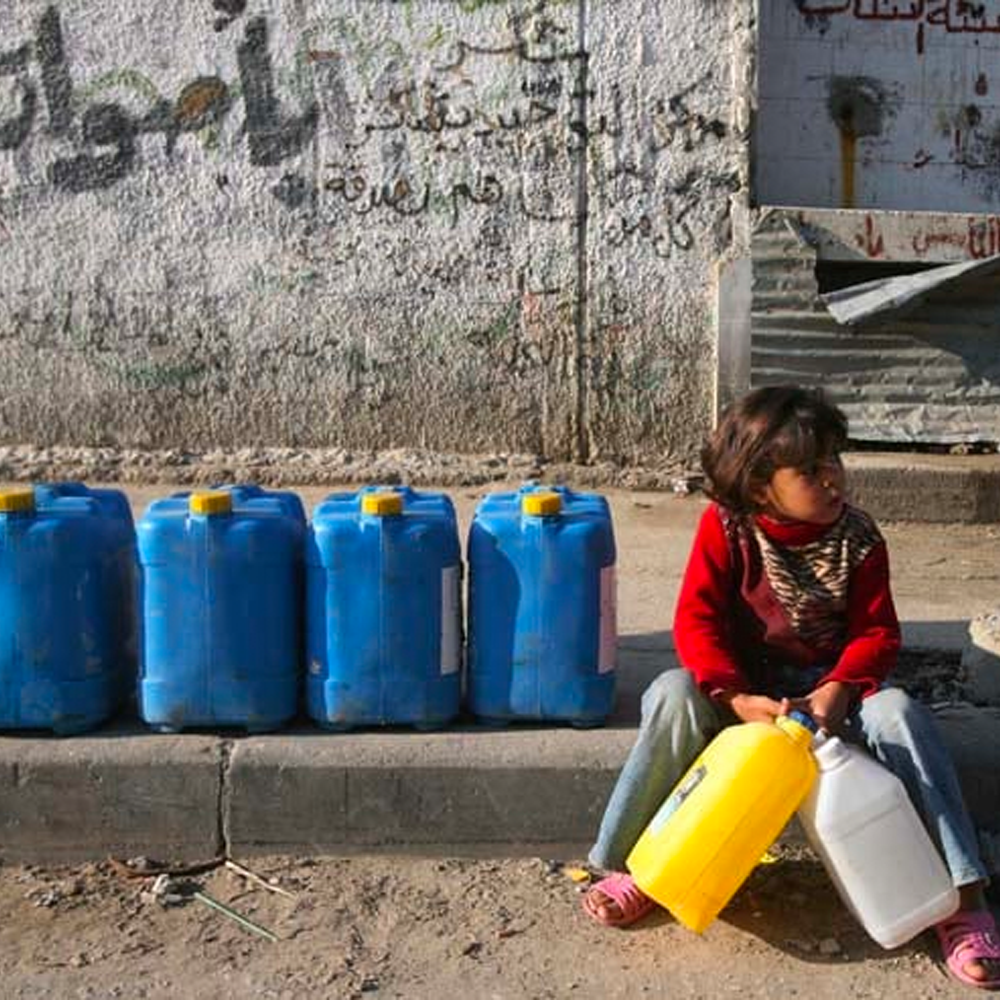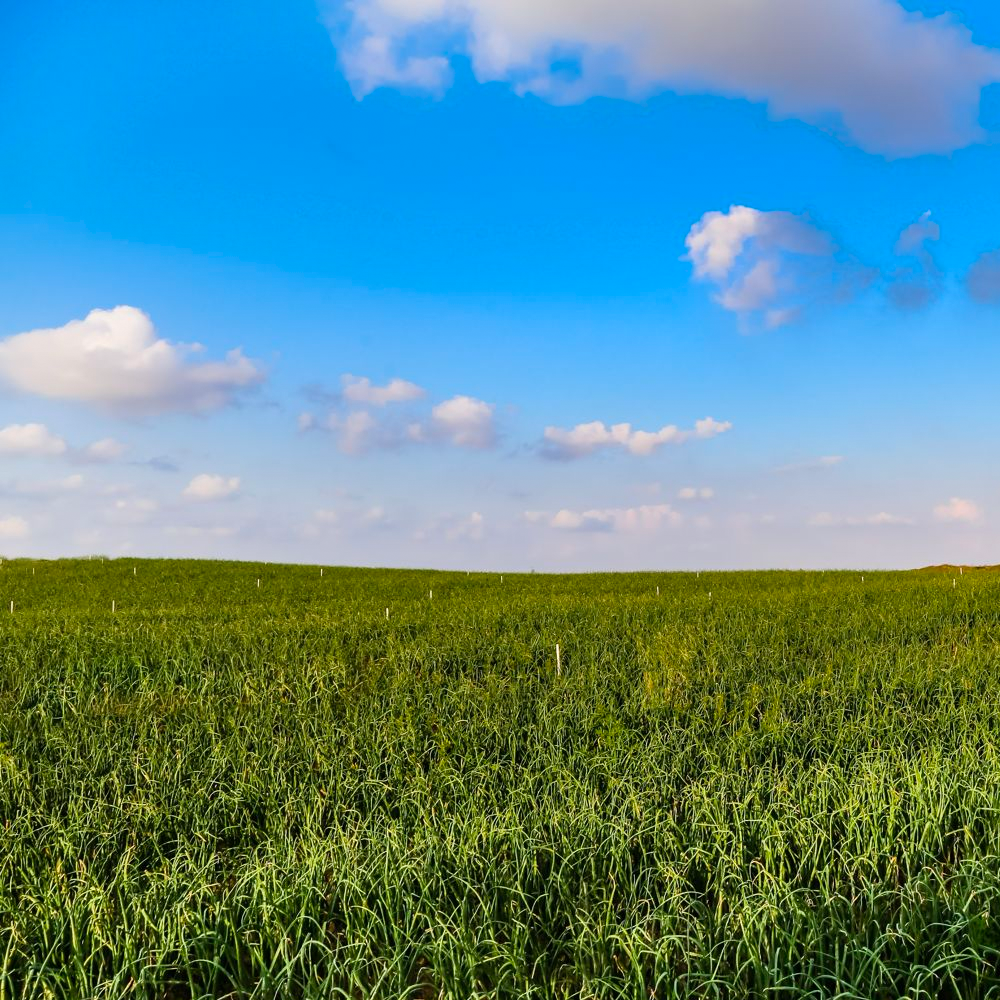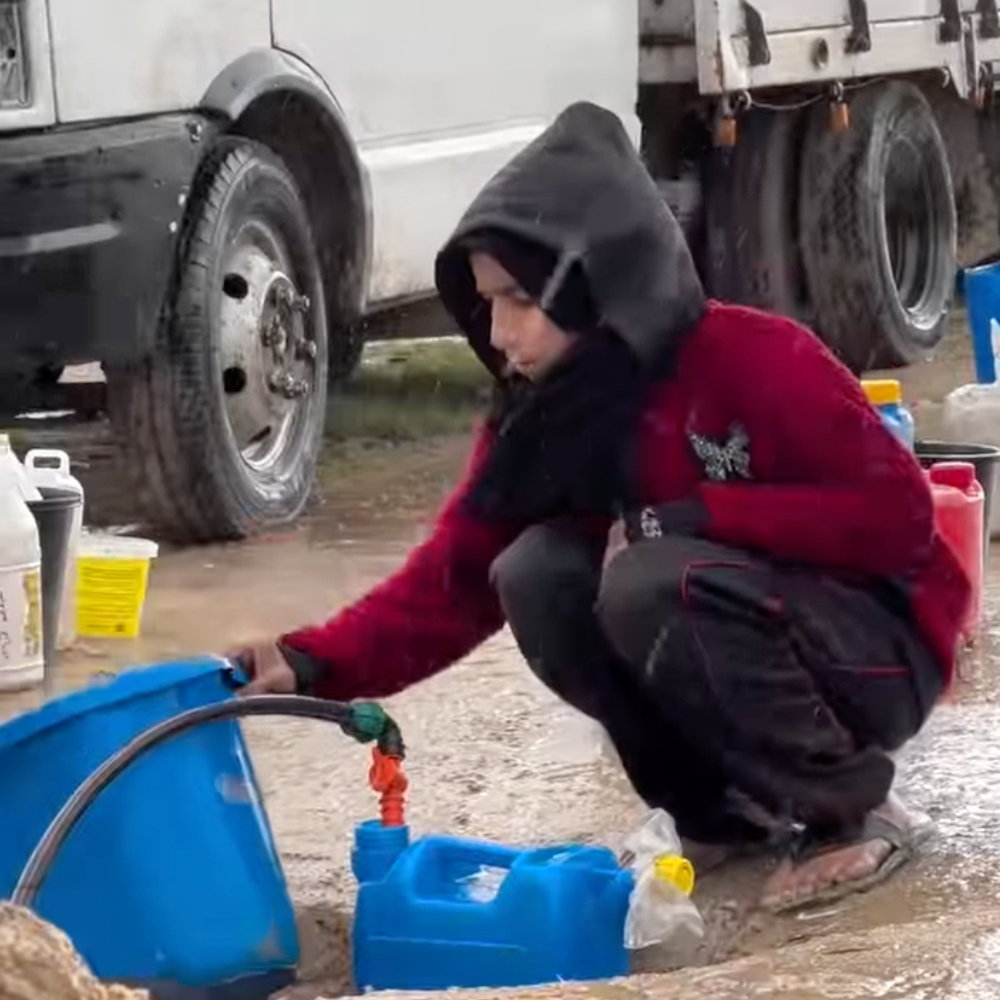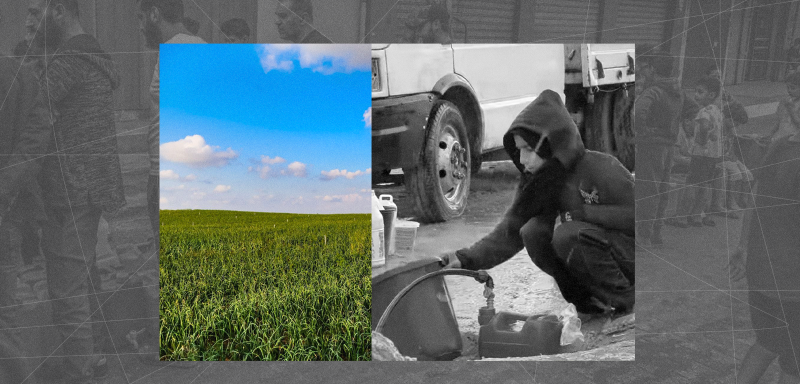This article was dedicated to Raseef22 by Water Justice for Gaza, a team of researchers and environmental activists from different countries. The article was originally published in the second issue of the newsletter released by the group at the end of January. The first issue was released in December 2023, coinciding with the COP28 summit held in the United Arab Emirates, while the aggression against Gaza continued. The group issued its newsletter demanding an immediate ceasefire.
The second issue includes four articles written by Palestinian, Canadian, and British researchers, addressing Israel's use of water as "a weapon of mass destruction" against Palestinians in Gaza by either seizing it, contaminating it to cause health damage to its users, or depriving the people of Gaza of their rights to access sufficient amounts. It also discussed the environmental impacts expected if the Israeli authorities carry out their threat to pollute Palestinian soil in Gaza by pumping seawater into what they believe are tunnels.
Raseef22 presents the article "Upside-Down Reality: Exposing the Harsh Water Apartheid in Palestine" published by British researcher Jan Selby, a Professor of International Politics and Climate Change at the University of Leeds.
 Residents of Gaza deprived of water
Residents of Gaza deprived of water
Even before the horrors of the three months, Palestine – and not just Gaza – was a model of upside-down water supplies and chronic water injustice. Consider just three facts:
First, Gaza was once a verdant oasis, a region of local water abundance and environmental plenitude. ‘We have crossed seventy leagues of desert – a very tiring business. Brackish water, often none at all,’ reported Napoleon Bonaparte following his trek through the Sinai Desert in 1799. But Gaza was different. Its ‘lemon bushes, olive groves, and broken ground are just like the scenery of the Languedoc,’ Napoleon wrote to one of his generals. Its climate, he added, ‘might be that of Paris.’ Through decades of settler-colonial violence, ghettoisation and impoverishment, Gaza’s natural beauty and bounty have been turned into an ecological and social disaster zone.
Even before the recent horrors, Palestine was a model of upside-down water supplies and chronic water injustice. Through decades of settler-colonial violence and ghettoisation, Gaza’s natural beauty has been turned into an ecological and social disaster zone
Second, despite its densely packed and predominantly refugee population, Gaza could easily have enough water. Across the world, almost all built-up areas of equivalent size have to ‘import’ water from beyond their municipal boundaries to meet local water needs. Modern Paris has to do this. Tel Aviv has to do this as well. Gaza is no different, except that Gaza is denied a meaningful water supply. Gaza is cut off from the land around it and bypassed by Israel’s highly integrated water network, which prefers to send water to hothouse dairy farms in the Negev Desert than to Gaza’s Palestinians.
Israel does not have a water shortage. Indeed, it has surplus water supplies that it is keen to market and sell — just not to Gaza.
Israel does not have a water shortage. Indeed, it has surplus water supplies that it is keen to market and sell — just not to Gaza. The basics of this apartheid reality were established during the 1990s, under conditions of so-called ‘cooperation’ and ‘peace’
Thirdly, what makes this all the more extraordinary is that the opposite applies to the West Bank. Rainfall and natural water resources are significantly greater in the West Bank than in Gaza, so the West Bank could easily manage without importing water from elsewhere. Yet because of Israeli restrictions on well drilling across the West Bank, Palestinians there have no option but to buy and import much of their water.
 Water Justice - The farms of Beit Hanoun before Israeli destruction
Water Justice - The farms of Beit Hanoun before Israeli destruction
All of this is upside down. Ramallah, where it rains more than in London, is compelled to import water, paying for it to be sent uphill from Israel. By contrast, Gaza, a land that could not sensibly, with its modern population (2.3 million people), depend mostly on its internal water resources, is forced to do just that.
‘We have crossed 70 leagues of desert – a very tiring business. Brackish water, often none at all,’ reported Napoleon Bonaparte following his trek through the Sinai Desert in 1799. But Gaza was different, full of ‘lemon bushes, olive groves, and broken ground’
In both cases, and together, a system of water apartheid has inflicted water resource destruction, water poverty, and dependency upon Palestine. Palestine suffers from saline and polluted groundwaters, dried-up springs, forced reliance on Israeli and donor ‘generosity’, and agricultural decline, and its communities are left with nowhere close to the water supplies necessary to meet basic domestic needs – all right next to Israel, where water is in excess.
Moreover, the basics of this apartheid reality were established during the 1990s, under conditions of so-called ‘cooperation’ and ‘peace’.
"That Palestine needs water justice is self-evident. But this won’t be achieved without a complete dismantling of the apartheid system. While an end to Israel’s current genocidal campaign is the immediate priority, water justice for Palestine will demand much more"
That Palestine needs water justice is self-evident. But this won’t be achieved without a complete dismantling of the apartheid system. While an end to Israel’s current genocidal campaign is, of course, the immediate priority, water justice for Palestine will demand much, much more.
*Jan Selby, Professor of International Politics and Climate Change at the University of Leeds, UK
 Residents of Gaza deprived of water
Residents of Gaza deprived of water
Raseef22 is a not for profit entity. Our focus is on quality journalism. Every contribution to the NasRaseef membership goes directly towards journalism production. We stand independent, not accepting corporate sponsorships, sponsored content or political funding.
Support our mission to keep Raseef22 available to all readers by clicking here!
Interested in writing with us? Check our pitch process here!





